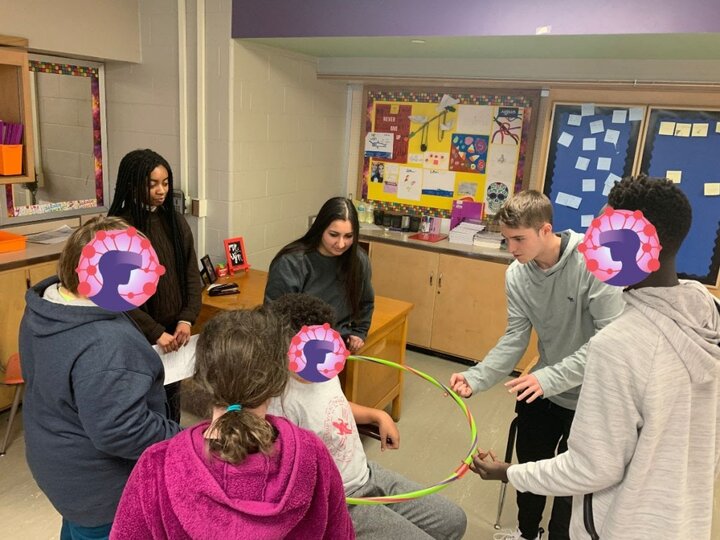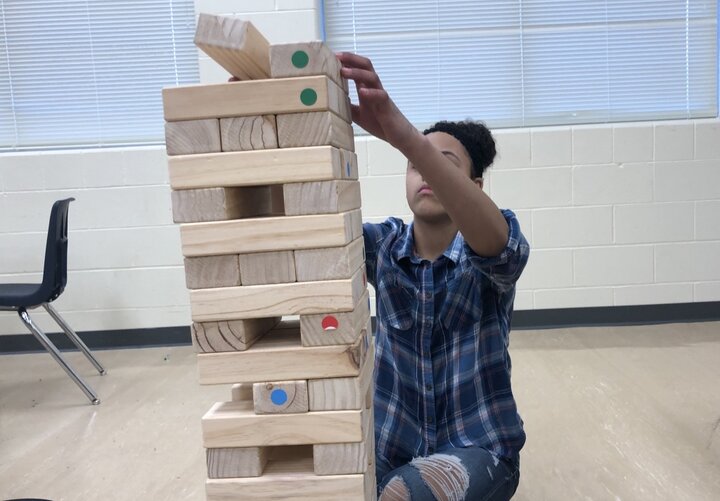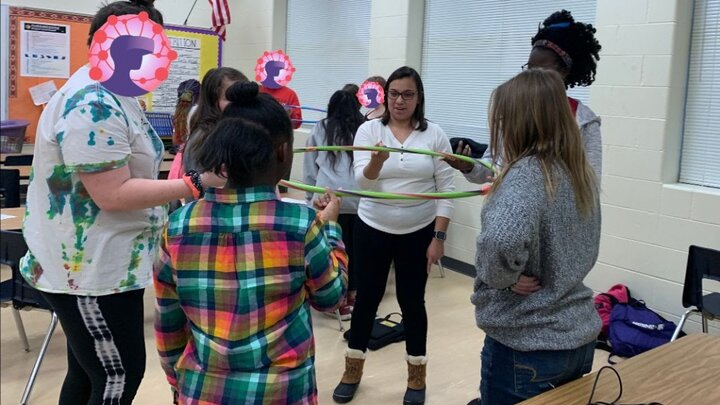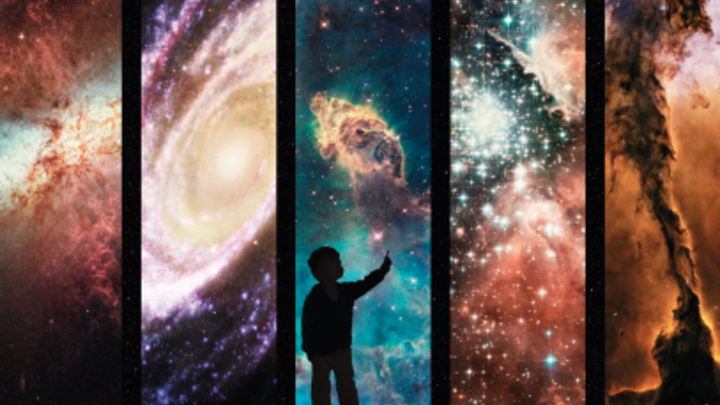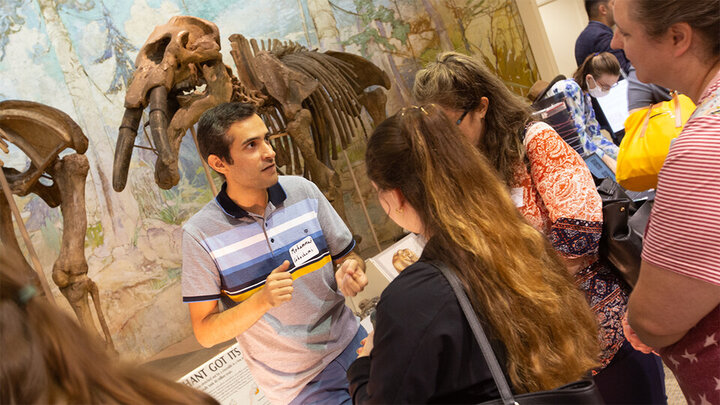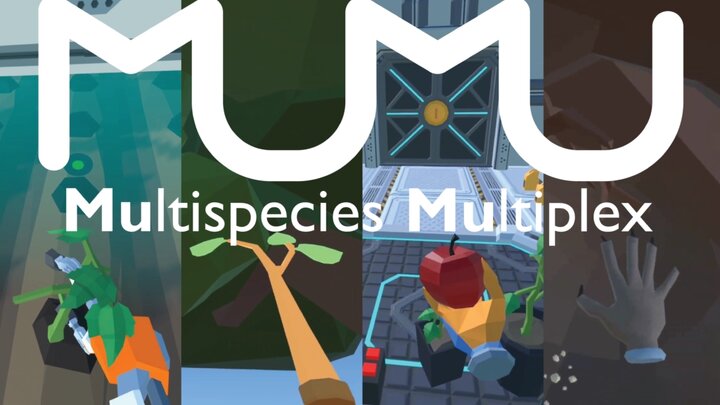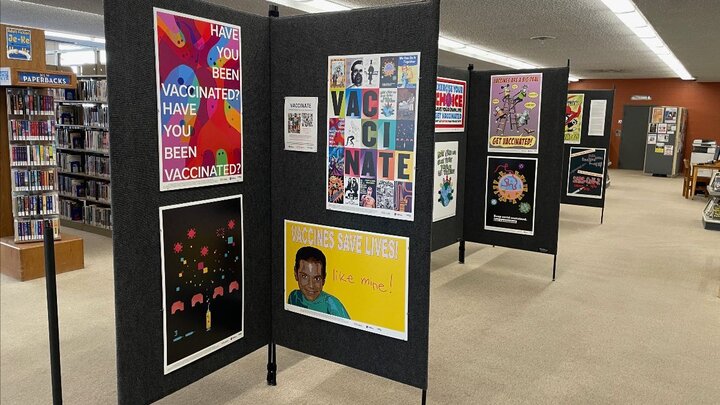3 August 2020
Volume II, Issue 2
Letter from Dr. McQuillan
Hello Worlds of Connections community,
I’m excited to write to you at the end of our second year of Worlds of Connections. We are grateful when you answer our questions and eager for you to bring us updates, ideas, and insights. We are also thrilled that our second annual report is done.
Since our last newsletter in December, the world has changed a great deal. Many more people have heard words such as “modeling” and “components” and are learning why visiting “just one friend” can contribute to exponential growth in people at risk of COVID-19 infection. Our favorite network science game, The Wisdom and/or Madness of Crowds by Nicky Case, now has a sister game by the same designer specifically about COVID-19: What Happens Next?.
As you might suspect, we had to make some big changes to our project, and quickly. We suspended our after-school clubs in March; we worked on an NSF RAPID proposal (you will learn more below); and we joined a large team of professors to teach a module about COVID–19 and network science (more about this in the next newsletter, but in the meantime, learn more on our website).
Now more than ever, the importance of network science for health is apparent to our team, and we value the work that you all are doing in your respective specialties. Learn more about the details of our project below and at worldsofconnections.com.
Thank you for your support.
Project Accomplishments
Network Science Activities & Deliverable Development
Since our last newsletter, our team has created, piloted, evaluated, and refined network science activities for middle-school-aged youth in informal settings. To make fun, engaging activities that give youth exposure to network science concepts used in health research, our internal evaluator, Dr. Amy Spiegel, conducted extensive formative evaluation, including the formal observation protocol Dimensions of Success (DoS).
Reflecting upon DoS evaluations and mentor feedback forms, we realized that few college-student mentors have had formal education in network science. To address the gap in mentor knowledge, we are identifying, evaluating, and, when necessary, developing new background resources that provide fundamental knowledge of network science (e.g. essays and short videos).
In Spring 2020 we were excited to welcome Ash Smith, assistant professor of Emerging Media Arts, to the project to lead the exploration of storylines for AR/VR deliverable content.
Presentations
Our team had intended to present at several conferences in the spring of 2020 that were cancelled due to the COVID-19 pandemic. We had two conference presentations accepted to the Midwest Sociological Society Annual Meeting, including the presentation Do Teachers Seek Advice from Each Other More on Some Topics than Other Topics?, plus submitted two breakout sessions to the SEPA SciEd conference: Social Networks, Community, and Students’ Identities (in partnership with the Iowa State and University of California San Francisco SEPAs) and Modeling Diversity in Thought: Strengthening Informal Science Education through an Interdisciplinary Team.
Outreach & Mentoring
We expanded the Lincoln chapter of the Omaha-originated NE STEM 4U afterschool program and continued partnerships for additional opportunities. In Lincoln we hired two new undergraduate mentors, Aditi Jain and Chika Akwani, and ran two clubs to pilot new and refine existing network science activities.
In early 2020 when the Lincoln clubs were suspended, undergraduate mentors reviewed and critiqued background material, network science activities, and a recent book on network science—The Human Network by Matthew O. Jackson.
We re-committed to our collaboration with the Mid-America Transportation Center Sovereign Native Youth STEM Leadership Academy, a six-day summer program which was held online from June 29–July 3.
We were unable to participate with a “booth” at the Malone Center’s Juneteenth celebration this year due to the pandemic and the resulting changes in format; we hope we can participate again next year.
Co-I Dr. Christine Cutucache earned the 2020 Fulbright Specialist position to Finland, which was postponed due to COVID-19. Her plan is to visit Finland when possible to establish a “franchise” of NE STEM 4U. She continues to run the STEM TRAIL (Teaching, Research, and Inquiry-Based Learning) Center at the University of Nebraska–Omaha. The Center’s webpage includes network science information—we encourage you to visit the page and explore the useful resources.
Collaborative Research
WoC team member Dr. Judy Diamond led an NSF Rapid Response (RAPID) submission in response to COVID-19, which was successfully funded and is now underway. PI Dr. Julia McQuillan, Co-I Dr. Trish Wonch Hill, and UNL Assistant Professor of Veterinary Medicine & Biomedical Sciences Elizabeth VanWormer are co-investigators. In addition, Amy Spiegel, our project evaluator, is also the evaluator for the RAPID project. The project, entitled World of Viruses: COVID-19, integrates the foci of three SEPA projects (World of Viruses, Biology of Human, and the current Worlds of Connections) and adds insights from Nebraska One Health research on the connections among humans, animals, and environments to help youth understand the COVID-19 pandemic through free online graphic narratives.
PI McQuillan and team member Diamond are co-investigators on an internally funded (through UNL) seed grant, entitled Environmental Futures, with fellow WoC team member Ash Smith and assistant professors Elizabeth VanWormer and Stacy Asher (Art). The project will create a hub platform to facilitate convergence of social science, physical science, and art faculty to imagine and create sustainable Environmental Futures.
Senior personnel Dr. Wendy Smith is a co-investigator of an internal UNL grant, funded by the Office of Research and Economic Development, as part of a set of COVID-response grants. The Communities of Practice in First-Year Mathematics Courses (PI Dr. Allan Donsig) explores how communities of practice of instructors changed during the switch to remote teaching and learning. A key to this project is understanding how the teaching networks for these instructors changed. This summer 2020 project is informing how the Mathematics Department plans to support communities of practice of instructors in fall 2020.
Thank you all again for your involvement and support! Please do not hesitate to contact us with updates, suggestions, questions or comments.
We look forward to seeing you in the fall!
Best regards,
Julia McQuillan
Worlds of Connections Primary Investigator
Professor & Chair of Sociology, University of Nebraska-Lincoln
Upcoming Happenings
We continue to work on network science activities for youth. We are creating essays and gathering materials to strengthen mentor knowledge of the network concepts underlying each activity. Due to the ongoing COVID-19 pandemic, NE STEM 4U: Lincoln will not be in session during the Fall 2020 semester.
This fall, Worlds of Connections themes will be the primary focus for emerging media arts students in Ash Smith’s practical applications class. Together, Professor Smith and her students will create games in virtual worlds and explore network science for health.
Despite the COVID-19 pandemic, we will finish our second wave of data collection for the teacher survey in July and analyze changes in science teacher information sharing networks in August.
With WoC Advisory Board Member Dr. Robin Gauthier, we are surveying 700 Nebraskans who participated in the Nebraska Annual Social Indicators Survey (NASIS) in 2018 through the Bureau of Sociological Research “NebrASKa Voices” panel project. We will learn about public knowledge of and interest in network science, pandemics, viruses, vaccines, and health; and Dr. Gauthier will learn how social networks can change during a pandemic.
In partnership with the RAPID project World of Viruses: COVID-19, we will invite middle-school-aged youth to participate in a survey to assess engagement with the C’rona Comix. Check the World of Viruses: COVID-19 website every Friday for a new addition to the graphic narrative series!
Upcoming Dates
7 August 2020 | Professional Development Event for LPS Science Educators
14-16 August 2020 | SciComm | Virtual Science Communication Conference
NE STEM 4U: Lincoln Spring 2020 Club Photos
All club activities pictured below took place prior to March 13, 2020.
